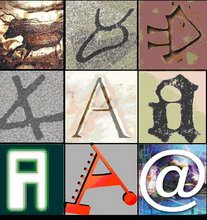*************************************************************************************************************
EASST Conference 2010, European Association for the Study of Science
and Technology
'Practicing Science and Technology, Performing the Social,'
University of Trento, Italy, 2-4 September 2010. Abstract submission
deadline: 15 March 2010.
http://events.unitn.it/en/easst010
**************************************************************************************************************
TRACK:
DIGITAL GAME PLAY AS SOCIOTECHNICAL PRACTICE
The Digital Game industry has become one of the fastest growing,
innovative and globalised industries in advanced Western economies and
Digital Games have become a key cultural artefact and leisure practice
in contemporary societies. Developing out of the American military
industrial and academic complex in the 1970s the study of Digital
Games design and play is the study of a range of sociotechnical
practices and the negotiations between a range of human and non-human
actors operating within systems of rules. The complexity of these
relationships brings forth a series of questions that can be
investigated using Science and Technology Studies approaches. However,
to date games studies, with few exceptions, have failed to adopt STS
approaches and the STS community has largely ignored this area of
study.
This track seeks to develop the relationship between the game studies
community and the STS community. Several research questions can be
used to guide this: What STS theories can be used to understand
Digital Games as sociotechnical phenomenon? Is the concept of practice
and the practice-based approach useful to investigate Digital Games?
Is there a relationship between power as inscribed and imposed by
artefacts and the technical dimensions of Digital Games? What rules
are inscribed into Digital Games technologies and what social worlds
do these rules describe? What contribution can the study of Digital
Games make to the STS discipline at large? And what contribution can
an STS approach make to game studies? Can we foresee an after-method
approach for Digital Games?
We invite papers that tackle the sociotechnical dimensions of Digital
Games and address some of the questions outlined above. Contributions
might include (but are not restricted to):
• Digital Games as material semiotic artefacts
• Digital Games as sociotechnical assemblages
• The mess of digital games
• Innovation in game design as actor-networking and social shaping
• Digital Game design and/or play as performance and practice
• Disruptive sociotechnical users’ practices (e.g. hacking, modding)
• The scripting of gendered gaming practices
• Governance and regulation of gaming practices
Abstracts of no more than 500 words should be sent by email (following
website instructions:
http://events.unitn.it/en/easst010/abstract-submission) by 2010 March
15th. Please include also a preliminary references list (up to 4).
Contact for inquiries: stefano.depaoli@nuim.ie
Convenors
Aphra Kerr is a lecturer in the Department of Sociology at the
National University of Ireland Maynooth. Her research focuses on the
regulation, production and consumption of digital media and in
particular of digital games; she established and runs the industry and
community website. (www.gamedevelopers.ie)
Helen W. Kennedy is Deputy Head in the Department of Culture, Media
and Drama at the University of the West of England (UWE) in the UK.
She has been researching and writing about games since 1993 and
co-founded and chaired (from 2004 – 2009) the Play Research Group at
UWE.
Jennifer Jenson is Associate Professor of Pedagogy and Technology in
the Faculty of Education at York University. Her research interests
include gender and gameplay and the design and development of digital
games for education.
Stefano De Paoli is postdoctoral researcher at the Department of
Sociology at the National University of Ireland Maynooth. Stefano has
worked in STS since 2004 and recently his research interest has
embraced Massive Multiplayer Online Games
(http://www.nuim.ie/nirsa/people/postdocs/stefano_de_paoli.shtml)
Assinar:
Postar comentários (Atom)


Nenhum comentário:
Postar um comentário